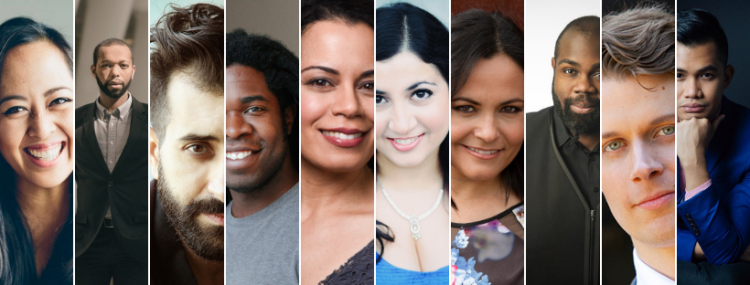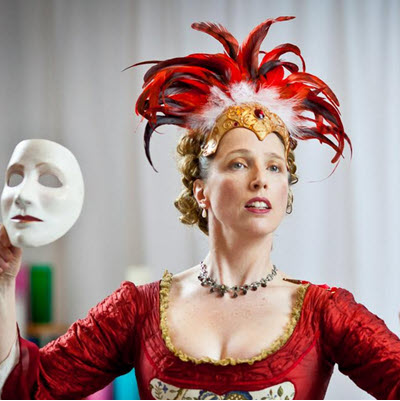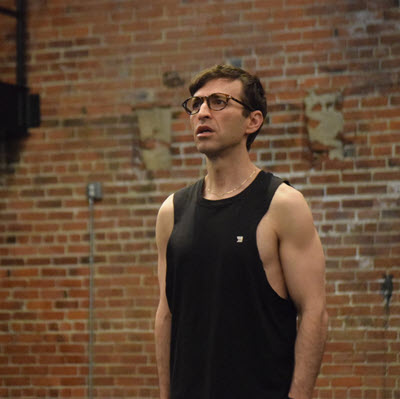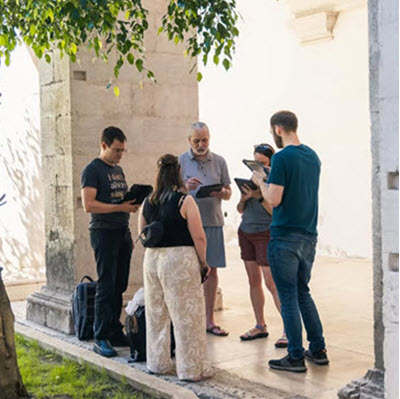by Arianne Abela
Published January 1, 2020

From the January 2020 issue of EMAg
It was a crisp fall morning in New York City, and my chorus and orchestra had just finished filming for NBC’s The Today Show. As I walked back to our bus, still elated from the experience, I felt a tug on my coat. A young Filipino girl wanted to speak to me after watching us film. She told me she had never seen a Filipino woman conduct a chorus and orchestra before, and for the first time she realized that someone who looked like her could appear on a concert stage. She thanked me before disappearing into the bustling streets of the city.
That beautiful moment has inspired me to reflect deeply about my own journey as a musician.
I grew up with a physical disability affecting my hands, and I found music completely shut off from me, except while singing in my children’s choir. Even so, I would look at my darker skin and wonder if other musicians would accept my presence. As a child, I opted out of an audition for the musical Annie because I didn’t think a young Filipino girl should be allowed to play that leading role.
In graduate school at Yale, my dear friend, the wonderful soprano Sherezade Panthaki and I would often discuss diversity, inclusion, and race in our musical culture, raising many questions. How can we teach children that music is a space where all people are welcome? How can we lift up voices instead of suppressing them in a world that talks about openness and inclusivity but often falls short? How can we use our own voices to effect change? In response to our questions, we founded Kaleidoscope Vocal Ensemble.
Kaleidoscope is a racially diverse octet whose artists specialize in early and new music. In coming together, our hope is to share our stories, visions, hardships, and successes to help inspire people on and off the stage. As performers, we have a duty to reach listeners beyond our immediate audiences. How can we make quality music accessible to all people and all educational levels? We hope to send a message to the youth of our country that says “you belong here” by modeling representation and inclusivity for young aspiring musicians.
In September 2019, we held our inaugural residency at Amherst College, where we shared the stage with students and spoke with them about race, diversity, and inclusivity in our field. We ended by doing a workshop with Morse Chorale, a choir of diverse New Haven students in grades 4-12. Sherezade described our residency as a “transformative experience in terms of cultural diversity and heralding artistic excellence. [Students] shared heartfelt responses with their director about the value of seeing and hearing a professional world-class classical music ensemble made of up of singers whose ethnic diversity mirrored their own.”
The experience exceeded my expectations. I could see the students’ faces light up with joy upon hearing our stories and our music. Our singers felt equally inspired by their heartfelt commitment to one another and their musicality. It was in this moment that I realized how important these connections are with our youth. In that space and time, we shared the same sentiment: “We see you, we hear you, you matter, and our voices matter.” As Danielle Lebron, an 11th grader, put it, “Seeing and meeting Kaleidoscope was beyond moving… I have always had my doubts of being able to continue music after college, but seeing these adults create a space for their passion gives me hope that one day I can too.”
 Arianne Abela is Director of Choral Activities at Amherst College. She lives in Sunderland, MA, with her husband, Noah Horn, and three-year-old daughter, Hazel.
Arianne Abela is Director of Choral Activities at Amherst College. She lives in Sunderland, MA, with her husband, Noah Horn, and three-year-old daughter, Hazel.




